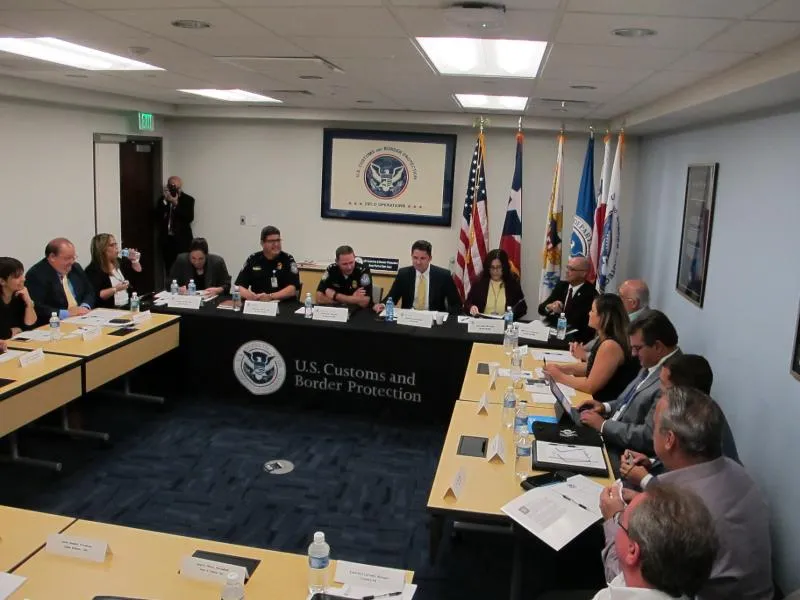SAN JUAN, Puerto Rico – U.S. Customs and Border Protection (CBP) San Juan Field Operations hosted Tuesday various representatives of the Puerto Rico trade community to converse regarding the import and export process in the island.
By reaching out to the local trade community CBP seeks to enhance trade facilitation and trade enforcement efforts. 
“This is an opportunity for our CBP trade operators to understand the challenges brokers, forwarders, shippers and importers are having with the initiatives we are implementing,” indicated Edward Ryan, Assistant Director of Field Operations-Trade for Puerto Rico and the US Virgin Islands. “By partnering with industry leaders, CBP links our processes with modern business practices, which results in enhanced compliance with trade laws, improves our facilitation and enforcement efforts, and assists the U.S. economy.”
An area of significant discussion was the transition to the Automated Commercial Environment (ACE), as it becomes the primary system through which the trade community reports imports and exports and the government determines admissibility. Through ACE as the Single Window, manual processes are streamlined and automated, paper is being eliminated, and the trade community is able to more easily and efficiently comply with U.S. laws and regulations.
Among other topics conferred were the extension of Foreign Trade Zones (FTZ), the Customs Trade Partnership against Terrorism (C-TPAT) and Antidumping and Countervailing Duties (AD/CVD).
CBP conveyed its aim that unsafe products do not enter the commerce of the U.S. by working collaboratively and collectively with partner government agencies, other foreign governments and the trade community to better define and assess risk through increased automation and the sharing of information to encourage greater use of partnership and best practices to protect the U.S. consumer.
To illustrate the discussion, CBP alerted to the significant increase of more than 300% in the seizure of counterfeit merchandise during the first two quarters of federal fiscal year (FY) 2017 compared to the same period in FY2016.
CBP encouraged attendees to use the e-Allegations Online Trade Violation Reporting System, to anonymously report any suspected violations of trade laws or regulations related to the importation of goods into the U.S.

